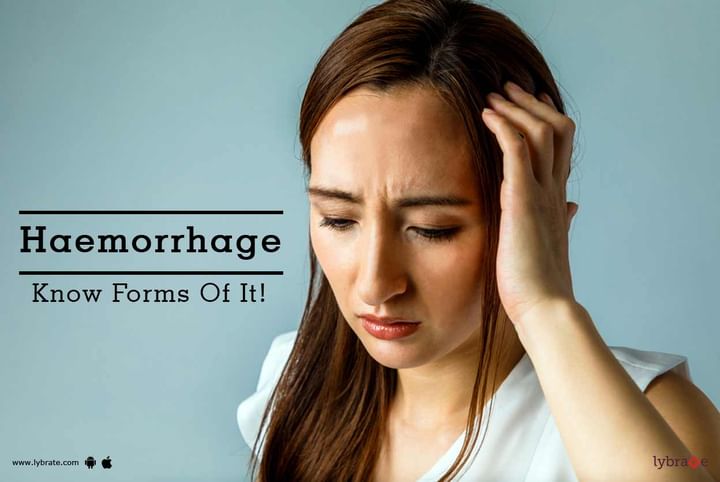Haemorrhage - Know Forms Of It!
In simple language, Hemorrhage is an escape of blood from the veins or blood vessels. This escape may happen because of various reasons like, for example, injury, low platelet count, threatened abortion, Piles (Hemorrhoids), cancer, surgery, liver disease, brain trauma, acute bronchitis, menstrual problem and so on.
Types of haemorrhage:
As a matter of fact, Hemorrhage is grouped into several categories. Hemorrhage can occur post surgery, and such haemorrhage is called postoperative haemorrhage. Similarly, for various reasons haemorrhage can occur from the artery (Arterial haemorrhage), vein (Venous haemorrhage) or capillary (Capillary haemorrhage). If haemorrhage happens because of an injury, it is called primary haemorrhage. Other types of haemorrhage are delayed bleeding post injury (Reactionary haemorrhage), bleeding following childbirth (Postpartum haemorrhage), delay in bleeding following Sepsis popularly called as septic (Secondary haemorrhage), bleeding from urine (Haematuria), bleeding while coughing (Hemoptysis) and bleeding caused in the stomach (Hematemesis).
Further, haemorrhage can be broadly classified into two namely internal and external:
* It would be needless to mention that excessive bleeding may lead to several complications. It can result in organ failure and there are instances that excessive bleeding can be fatal. On the other hand, blood loss can be external or visible haemorrhage like those caused during an injury. There are also instances of blood loss occurring internally in which case the patient may notice blood either in the urine or stools, vagina or while coughing or through the nostrils or even from the mouth. In such cases, the patient should be rushed to a doctor who after careful examination, and tests would be able to identify the causes of the internal bleeding.
* In case of external bleeding or external haemorrhage like those caused due to an injury, you may provide the necessary first aid. When the bleeding is noticed, do not get alarmed and also try to keep the patient calm. Haemorrhage caused due to external injury would normally stop within one or two minutes. However, if the bleeding persists even after two or three minutes, such cases would require medical attention, and therefore, you should rush the patient to the doctor at the earliest.
Remedies:
There are several remedies to tackle the problem of haemorrhage. Some of the normal procedures followed are IV fluid, oxygen, administering medicines like Vitamin B12 and so on. In complicated cases, the physician may suggest bone marrow surgical procedure, Endogenous EPO or such other procedures. If haemorrhage is left unattended, it can result in several complications. Therefore, you should rush the patient to the physician urgently.



+1.svg)
